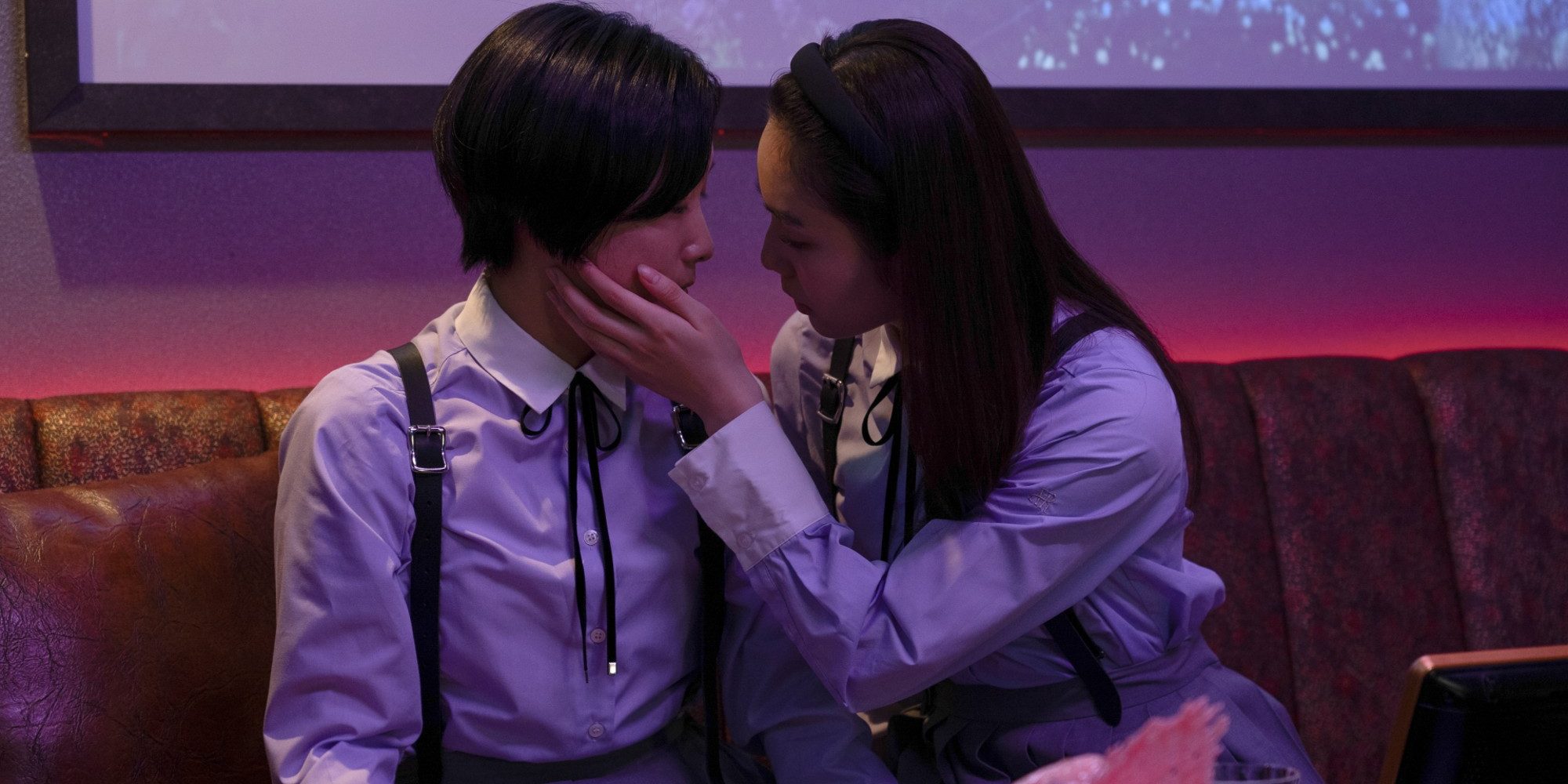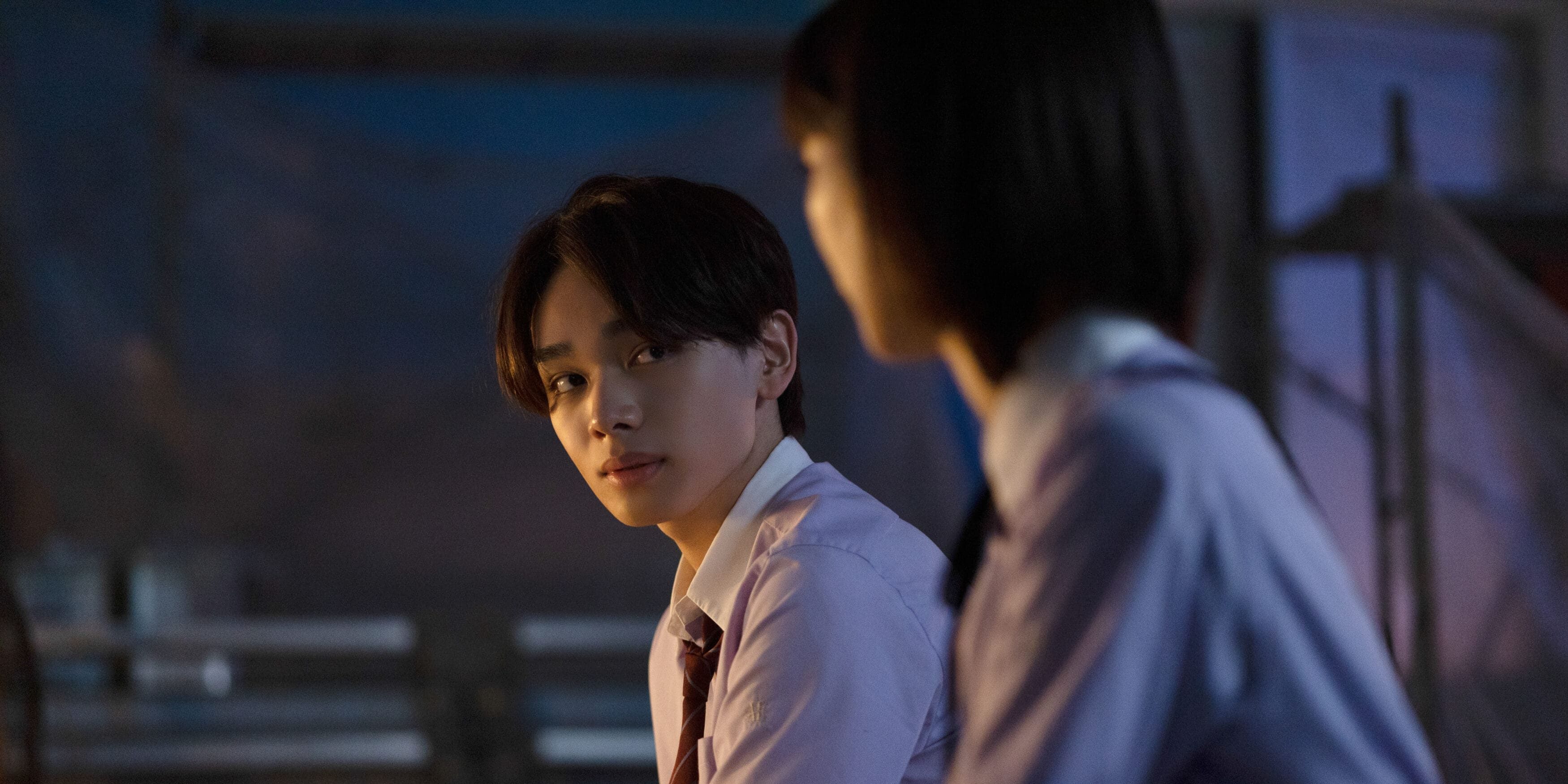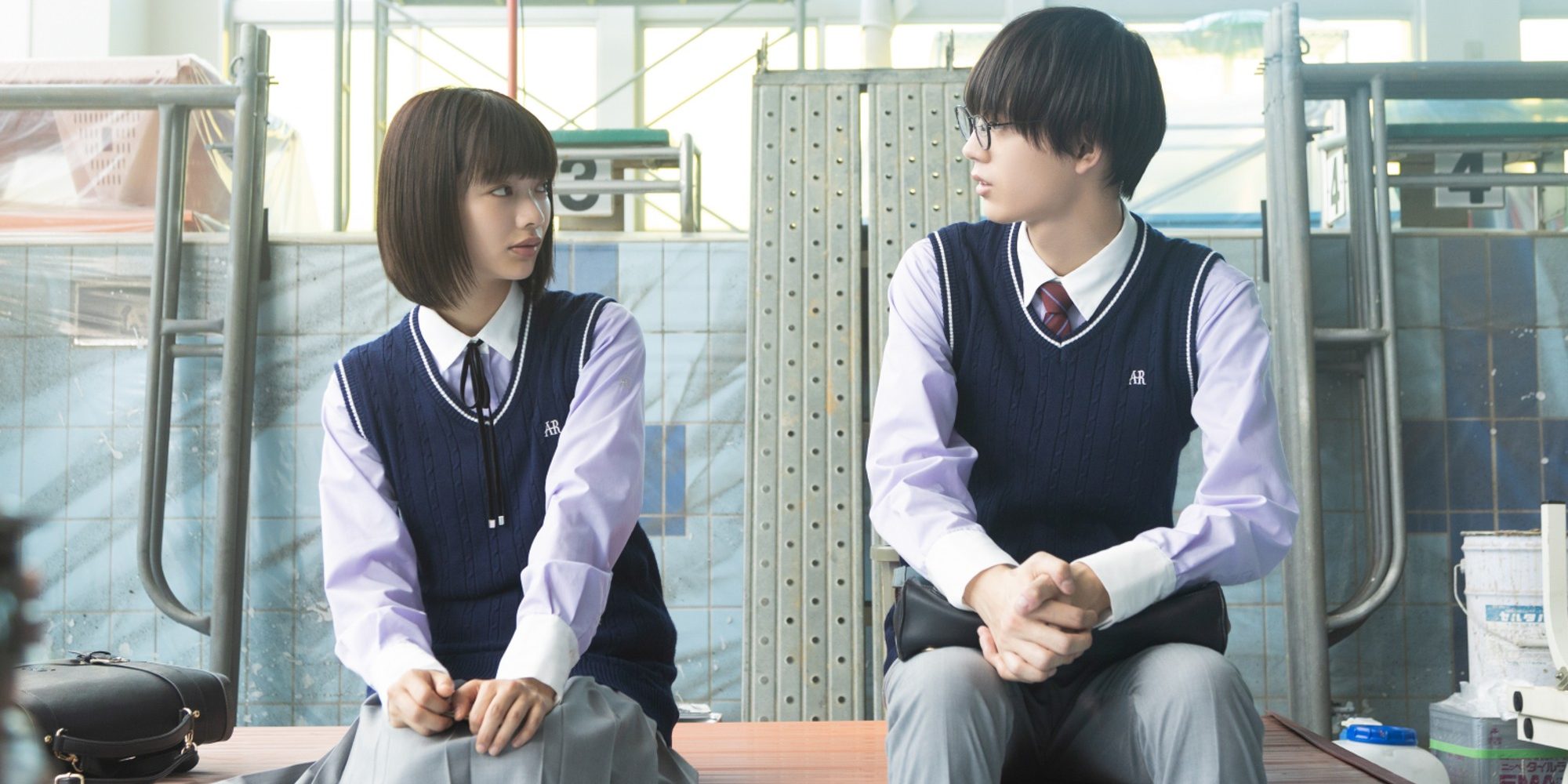Strict rules governing student behavior and lifestyles are not uncommon in some high schools, particularly within Asian education systems. Netflix’s ‘Chastity High’ directed by Soushi Matsumoto, Yuka Yasukawa, and Ryo Ota, provides a glimpse into this phenomenon. The Japanese TV series, originally titled ‘Renai Batoru Rowaiyaru,’ centers around students at a school with stringent dating regulations. Despite these restrictions, love quietly flourishes as students find ways to defy the rules. However, complications arise when a social media account reveals the students’ closely guarded secrets.
Fearing the consequences of their hidden romances being exposed, the students scramble to find solutions. Some band together, strengthening their loyalty to their friends, while others prioritize self-preservation and turn against each other. Amid the ensuing chaos, one group realizes that the only way to resolve the situation is to uncover the identity of the person behind the social media account. Determined to protect their secrets and restore order at the school, this group of friends embarks on a mission. The essential themes and points of discussion that the plot picks up beg one to question whether a true series inspired the series.
A High School Student’s Court Case Inspired Chastity High
Though the story of ‘Chastity High’ may seem fantastical to many, it reflects a reality not uncommon in the Japanese high school context. In Japan, strict rules governing student behavior, including dress codes, hairstyles, and even dating, are a well-known aspect of the education system. Writers Eriko Shinozaki and Rin Shuto aim to shed light on this phenomenon in the series, drawing inspiration from a true story that stirred significant media attention when it came to light.

In November 2019, two students at Horikoshi High School, a private institution in Nakano, Japan, were flagged by a teacher for being in a relationship, which violated the school’s strict no-dating policy. When questioned, the students admitted to seeing each other, and the matter was escalated to the principal. The girl was advised to “voluntarily withdraw” from the school, a suggestion akin to expulsion. She ultimately dropped out, likely facing the social stigma often associated with such events in Japanese society.
The girl, who was just months away from graduating, felt the school’s decision was unjust and decided to take legal action. She filed a court case against the school’s administrator, Horikoshi Gakuen, seeking 7 million JPY in damages for the disruption to her education. The case went before a judge, who upheld the school’s right to enforce such disciplinary rules. However, the judge also ruled that the way the student was pressured to “voluntarily withdraw” without proper guidance or an alternative course of action was unacceptable. Consequently, the school was ordered to pay the former student approximately 970,000 JPY in compensation.
Chastity High Exposes the Reality of School Discipline in Japan
This case marked the first time a court awarded monetary compensation related to a school rule about dating. However, the court’s decision to uphold the school’s regulations was not unprecedented. In 2017, a high school student from Osaka filed a complaint against her school for emotional damages, claiming she was forced to dye her naturally brown-black hair to conform to the school’s standards. When she refused, she was barred from attending classes, and her name was eventually removed from the roster. The court granted her monetary compensation, but only because she had been removed from the enrollment list; the rule itself was not considered unfair.

Strict rules in Japanese schools have long been a hallmark of the country’s educational system, reflecting broader societal values of discipline, conformity, and respect for authority. These rules, known as “kōsoku,” often govern everything from students’ hairstyles, uniforms, and makeup to their relationships and outside activities. While these regulations are intended to maintain order and focus on academic achievement, they can be rigid and have led to controversies, especially when infringing on students’ freedoms. Despite this, such rules are widely accepted and normalized within Japanese culture, with the belief that they instill a sense of responsibility, community, and discipline in students.
So, even though Chastity High pushes the boundaries of how things play out in the real world, it touches upon various vital themes that govern Japanese society. Seeing a reflection of such systems in popular media is crucial for fostering dialogue and discussion. By highlighting the often rigid and restrictive nature of school rules, the series opens up conversations about the impact of such regulations on students’ lives. It encourages viewers to critically examine the societal norms shaping education and the implications of enforcing conformity in a rapidly evolving world.
Read More: Best Japanese Movies on Netflix


You must be logged in to post a comment.